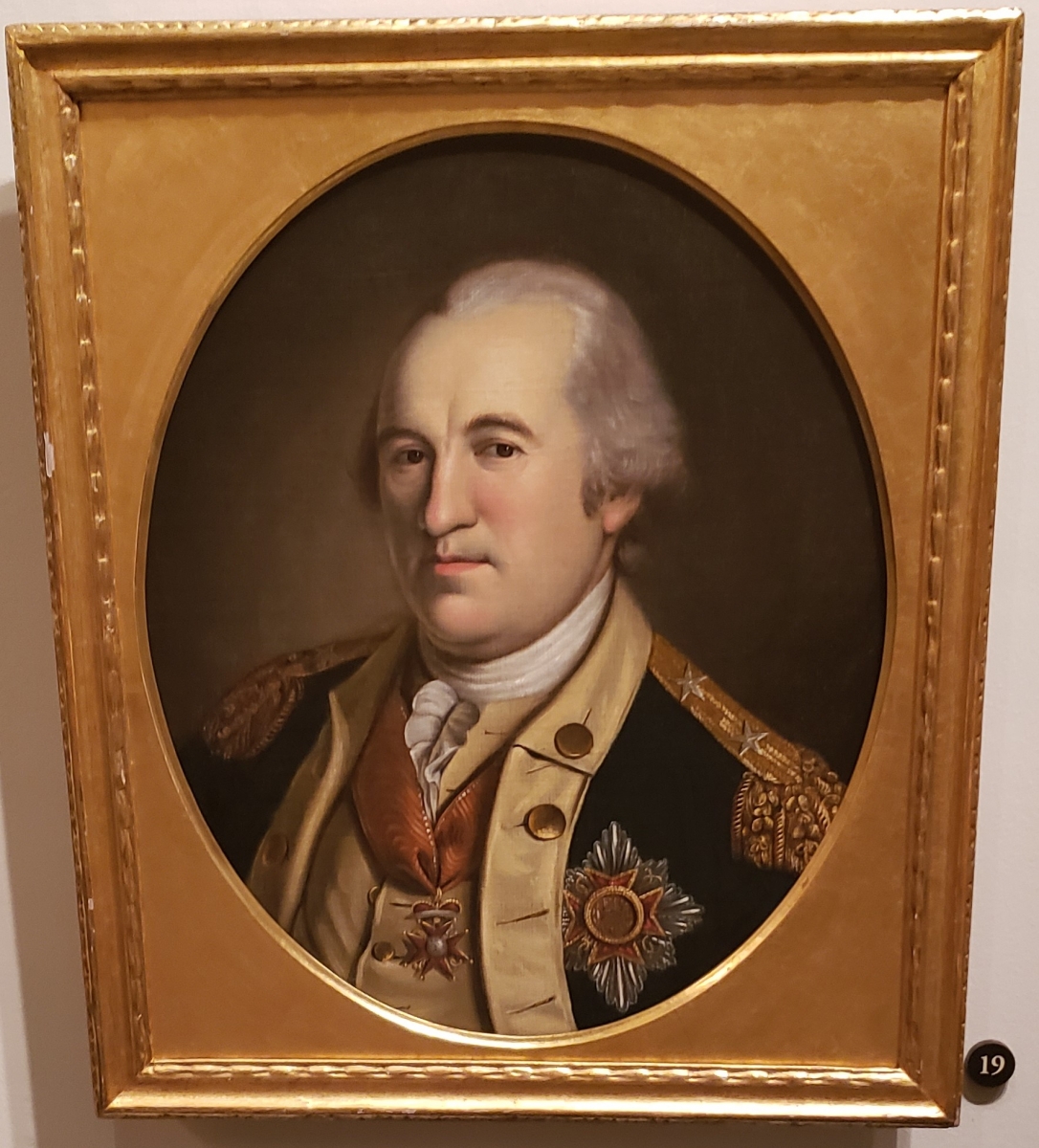Related Posts
- Buy Tickets for The Constitutional Walking Tour of Philadelphia – See 20+ Sites on a Primary Overview of Independence Park, including the Liberty Bell and Independence Hall
- Independence Hall
- Valley Forge National Historical Park
- New Hall Military Museum
- Museum of the American Revolution
Birth: September 17, 1730
Death: November 28, 1794 (aged 64)
Colony: N/A
Occupation: General
Significance: Served as Inspector General in the Continental Army (1777-1778); served as Major General in the Continental Army (1778-1784); and authored Regulations for the Order and Discipline of the Troops of the United States (Official Army Military Guide from 1779-1812)

Early Life and Education
Friedrich Wilhelm Ludolf Gerhard Augustin von Steuben, often referred to as Baron von Steuben, was a Founding Father of the United States. Born in Germany to a noble family, Steuben spent much of his childhood traveling across Europe since his father was a Prussian Army Captain who was often on the move. Steuben was educated in Poland and Germany during his travels, and by the age of 17, Steuben himself had joined the Prussian Army. Steuben served during the Seven Years War with distinction, rose to the rank of Captain and served as aide-de-camp to Frederick the Great, the ruler of Prussia. His military service afforded him opportunities for jobs within the Prussian Government, and by 1771, Steuben had earned the title of Baron.
The American Revolution
When Steuben heard of the American Revolution, he was intrigued by it as a principled fight for liberties, but also thought it could be a way to revive his military career which had stalled. Steuben’s military connections led to a meeting with Benjamin Franklin in Paris in 1777. Franklin tried to convince Steuben to join the American Revolution but conceded that he was not be able to offer Steuben a guaranteed rank or pay. Steuben would have to head to Philadelphia and present himself to the Continental Congress as a volunteer. Initially Steuben refused, but with dwindling prospects in Europe, Steuben decided to go to America. Franklin wrote a letter of introduction for Steuben and secured him passage to America.
In America, Steuben traveled to York, Pennsylvania, which was the temporary Capital city after the British had taken over the City of Philadelphia following the Battle of Brandywine. Steuben impressed the Continental Congress with his background in martial training and they immediately sent Steuben to Valley Forge where General George Washington and his army were spending the winter.
Steuben arrived at Valley Forge in February of 1778 and met with Washington who quickly named Steuben the Inspector General. The living conditions at Valley Forge were terrible by this point and the soldiers themselves were poorly trained and of poor morale. Under this new position, Steuben was charged with turning things around and preparing the Continental Army for the important fights ahead.
At this point, there was not even a standard method of conducting military drills in the Continental Army, so Steuben set about creating one. Steuben’s training manual was eventually titled Regulations for the Order and Discipline of the Troops of the United States and become the standard in the American Army for over 30 years. Unable to write in English, Steuben wrote about his drills and regulations in German, and then his writings had to be translated into English.
Steuben's work was quite groundbreaking and included thoughts and procedures on a variety of topics ranging from where latrines should be located in a camp to how soldiers should use their bayonets. In short order, he set about training the Continental Army at Valley Forge in these new standards. Initially, Steuben was unable to speak any English, and his spoken instructions had to be translated to the soldiers, just like his writings, but Steuben quickly began to pick up the key words and phrases he needed in English to be an effective teacher and leader. Legend has it that the first English words that Steuben learned were profanities, so that he could start cursing at the American soldiers in their native tongue when they failed to properly conduct his drills.
Steuben was well known for his attention to detail and despite having very little time to train so many men, Steuben never took shortcuts. Steuben spent days instructing soldiers in simple drills such as marching and how to hold their weapons. On May 6, 1778, there was a celebration as news got to Valley Forge that the French had officially signed a treaty of alliance with the United States. As part of the celebration, Steuben had thousands of soldiers perform the feu de joie, a ceremonial march and rifle salute. The army’s new discipline greatly impressed Washington as he observed the demonstration. Based on the Steuben's performance training the Continental Army, Washington promoted him to Major General.
Despite the language barrier and his demanding training, Steuben quickly became well liked by his charges and morale is said to have improved greatly as soldiers became more confident in their abilities on the battlefield, and thus more confident in their chances of winning against Great Britain. That confidence translated into actual battlefield success, and at the Battle of Monmouth, shortly after the Continental Army marched out of Valley Forge, the Americans were able to secure a victory in a tough battle in large part due the improved performance of Continental Army Soldiers.
As the Revolutionary War continued, Steuben became one of Washington’s most trusted subordinates. In the final major battle of the Revolution at Yorktown in 1781, Steuben was the Commander of one of the three divisions of Washington’s troops. Steuben served throughout the rest of the American Revolutionary War and helped plan for the military’s transition to a time of peace. Steuben was finally discharged from the Army in March of 1784.
Later Years
After the Revolutionary War, Steuben was recognized for service and was granted United States Citizenship. Steuben first settled in New York City after the Revolutionary War before moving upstate for the final years of his life. In his later years, Steuben became involved in charities designed to assist German immigrants to the United States. Steuben died in November of 1794.
Baron Von Steuben in America
During the American Revolution, Steuben had to meet with the Continental Congress regarding the Revolutionary War effort. Throughout most of this time, the Capital was located in the City of Philadelphia, and when it was, the Continental Congress met inside of Independence Hall.
Today in Philadelphia you can visit the New Hall Military Museum and the Museum of the American Revolution, both of which house artifacts from the American Revolutionary War and pay tribute to the soldiers such as Steuben who fought for American independence. Another tribute in Philadelphia to those who fought in the American Revolution is the Tomb of the Unknown Soldier, located in Washington Square Park, which is just steps off of the Constitutional Walking Tour. Independence Hall, New Hall Military Museum and the Museum of the American Revolution are all stops on The Constitutional Walking Tour!



